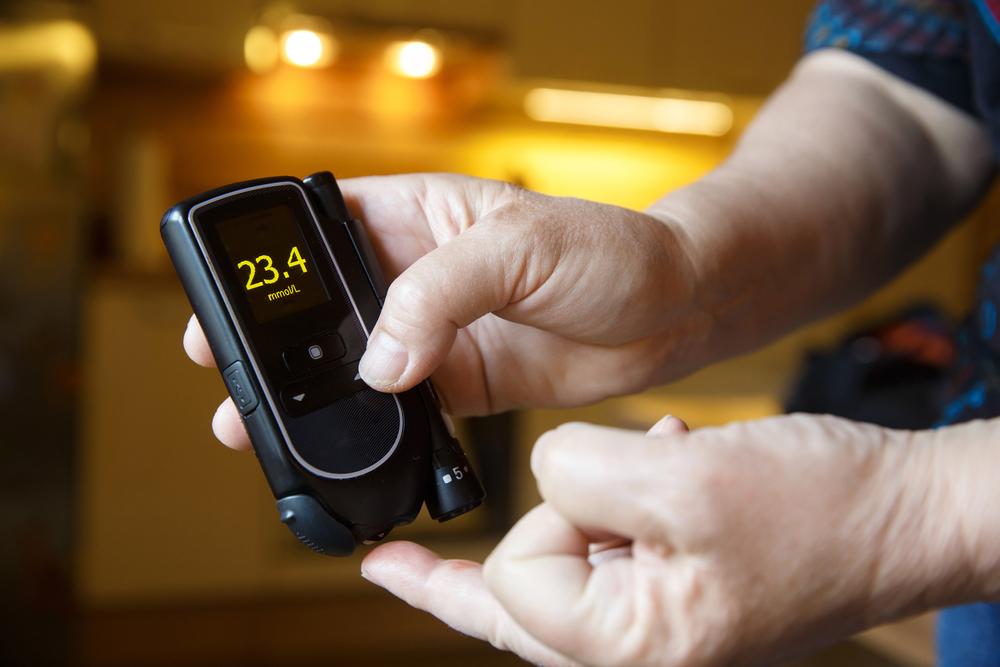Natural and Effective Methods to Control Diabetes Naturally
Explore comprehensive natural strategies to manage diabetes effectively, emphasizing the benefits of apple cider vinegar, dietary tips, and lifestyle adjustments. Learn how these methods can help improve blood sugar control naturally while supporting overall health in a safe and sustainable way.

Natural and Effective Methods to Control Diabetes Naturally
Understanding Diabetes
Diabetes mellitus is a chronic metabolic disorder that affects millions globally. Characterized by high blood glucose levels, it results from the body's inability to produce enough insulin or use insulin effectively. This condition, if left unmanaged, can lead to severe complications such as heart disease, nerve damage, kidney failure, and vision loss. Diabetes primarily manifests as two main types: Type 1 diabetes, an autoimmune condition where the body attacks insulin-producing cells, and Type 2 diabetes, which is often linked to lifestyle factors like diet, weight, and activity level. Managing blood sugar levels is crucial to preventing complications, and many individuals seek natural strategies alongside medical treatment to improve their health outcomes.
Introduction to Apple Cider Vinegar and Its Benefits
One of the most popular natural remedies for managing blood sugar levels is apple cider vinegar (ACV). Derived from fermented apples, ACV has been used traditionally for centuries for various health benefits. Its rich composition includes acetic acid, beneficial bacteria, and essential minerals such as magnesium, sulfur, iron, and copper. These nutrients and compounds have been linked to improved blood sugar control, cholesterol management, and overall metabolic health.
Research suggests that incorporating apple cider vinegar into your diet may provide significant benefits for those with diabetes. Several studies involving laboratory animals and humans indicate that ACV can reduce blood sugar spikes after meals, improve insulin sensitivity, and possibly lower LDL cholesterol and A1C levels, which are indicators of long-term blood sugar control. While these findings are promising, it's important to remember that ACV should complement, not replace, medical treatment prescribed by a healthcare professional.
The Science Behind Apple Cider Vinegar's Effects
Scientific investigations have demonstrated that apple cider vinegar’s acetic acid component plays a role in slowing carbohydrate digestion, thus reducing post-meal blood sugar surges. A notable study published in the Journal of Functional Foods observed that participants who consumed ACV before a carbohydrate-rich meal experienced lower blood glucose levels compared to those who didn't. Moreover, the acetic acid may improve insulin sensitivity, helping cells better absorb glucose from the bloodstream. Animal studies further support these effects, with rats fed ACV showing decreased LDL cholesterol and improved lipid profiles.
It's essential to understand that these effects can vary based on individual health status, diet, and lifestyle. Therefore, consulting a healthcare provider before starting any new supplement or remedy is crucial, especially for those on medication or insulin therapy.
How to Incorporate Apple Cider Vinegar into Your Diet
Incorporating apple cider vinegar into your daily routine can be simple and enjoyable. Since ACV has a strong, tangy flavor, diluting it with water is recommended to prevent tooth enamel erosion and digestive discomfort. Here are some effective ways to include ACV in your diet:
Mixing one to two teaspoons of ACV with a glass of water and drinking it before meals to help control blood sugar spikes.
Adding a splash of ACV to salads as part of a homemade vinaigrette, combined with olive oil and herbs like basil or oregano.
Blending ACV into smoothies or combining it with lemon juice and a small amount of honey for better taste.
Using ACV as a marinade for meats and vegetables, enhancing flavor while providing health benefits.
Incorporating ACV into homemade sauces or dips for added flavor and health benefits.
Taking ACV capsules or tablets as a convenient alternative for those who dislike the taste of liquid vinegar.
Drinking a mixture of ACV, water, and a natural sweetener such as stevia or a non-caloric sweetener for a healthier option.
For maximum efficacy, a typical dose is around two teaspoons of ACV diluted in a large glass of water, consumed 15 to 30 minutes before meals. Regular intake, combined with a balanced diet and exercise, can contribute to better blood sugar management over time.
It's important to note that ACV is highly acidic; therefore, excessive consumption may lead to adverse effects such as tooth enamel erosion or digestive issues. Using a straw to protect your teeth and rinsing your mouth afterward can help mitigate these risks.
Precautions and Consultation
While apple cider vinegar offers potential benefits, it is not a substitute for standard diabetes treatments. Those with existing health conditions, on medications, or pregnant and breastfeeding women should consult their healthcare provider before adding ACV to their routine. Monitoring blood sugar levels is vital to assess how your body responds to this natural remedy. Additionally, maintaining a healthy lifestyle, including regular exercise, a balanced diet, and weight management, remains essential in managing diabetes effectively.
In conclusion, integrating apple cider vinegar into your daily regimen can serve as a natural aid in controlling blood sugar levels, potentially reducing the risk of complications associated with diabetes. By combining these natural strategies with ongoing medical care and lifestyle modifications, individuals can work towards achieving better health and improved quality of life.





